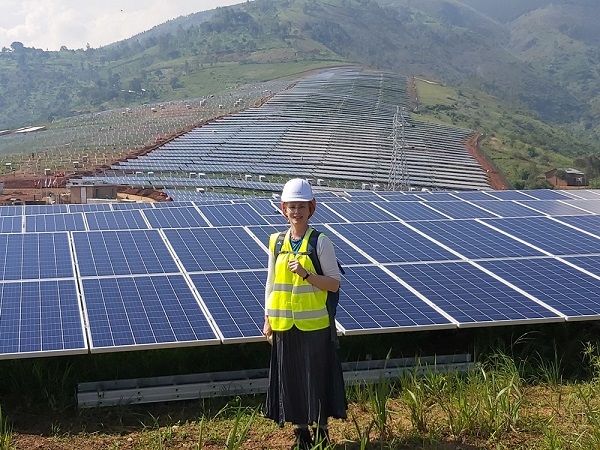An ambitious project to build a 7.5MW* solar PV power plant in one of the world’s least electrified countries has reached commercial operation.
Located in Mubuga in the Gitega Province, the project – which is the country’s first grid-connected solar project by an independent power producer (IPP) – has added approximately 10% to Burundi’s strained baseload generation capacity.
It has also increased Burundi’s resilience to climate change and improved its energy security by diversifying its energy mix to include solar, since the country currently relies largely on hydropower which is increasingly affected by droughts and imported diesel for gensets.
The project was developed as a public-private partnership between the Government of Burundi and developer Gigawatt Global Coöperatief (Gigawatt) and is expected to pave the way for other renewable energy projects in the country.
Full construction of the plant got underway in January 2020 after the project had become the first REPP-supported grid-connected project to achieve financial close in 2019.
Commercial operation was achieved in 2021 following a series of delays due to COVID-19, and it is estimated that the plant is now supporting the electricity needs of approximately 90,000 people and businesses through the improved stability of the local distribution network.
Around 190 full time jobs were created during construction, of which around a half were held by women, and up to 25 long-term jobs during the ongoing operational phase.
Gigawatt Global is also building a community center powered by solar energy that will offer local access to productive use of electricity. The center will focus on community development through women’s empowerment and youth and employment programs, along with various educational components being developed with local and international NGOs.
REPP has supported the development of the Mubuga project since December 2016, culminating in a construction bridge loan (alongside Evolution II Fund, managed by Inspired Evolution Investment Management) and a subordinated term loan.
As the first of its kind in Burundi, the project has a strong demonstration impact, building capacity within government and strengthening political buy-in and support for small-scale utility renewables, thereby establishing a more viable market for renewable energy projects in the country.
Also Read
Renewable energy jobs reach 12 million globally-report
South Africa’s PPC welcomes state ban on imported cement

